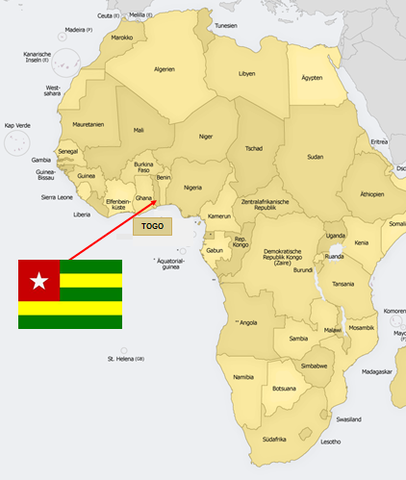
Togo is one of the poorest countries in the world with a population of around 8 million and an area one-sixth the size of Germany. Due to its proximity to the equator, the climate is tropical all year round with night-time temperatures of 22°C -28°C and daytime temperatures of 32°C - 39°C. Togo is a tropical, rain-dependent agricultural country. Togo is a tropical, rain-dependent agricultural country. The level of education in agriculture is low, with almost two thirds of the population working in agriculture. The staple foods grown include maize, yams, manioc and rice. Agriculture has a small-scale structure and the small farmers have to carry out the field work laboriously by hand. Yields are correspondingly low and there is no money to buy machinery.
Togo is divided into 5 regions: Maritime, Plateaux, Kara and Savannah. Togo was a German colony from 1884 to 1914. During this time, among other things, a railroad line was built, some of which is still in operation today. A German is still a welcome guest in Togo today and that makes many things easier. From 1914 Togo was under French administration and therefore French is the national language today alongside Ewe. Togo has been an independent state since 1960. The deep-sea port in the capital Lomé is one of the largest ports on the West African coast and is of great economic importance to Togo.
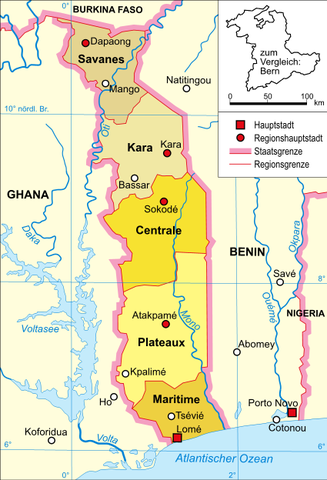
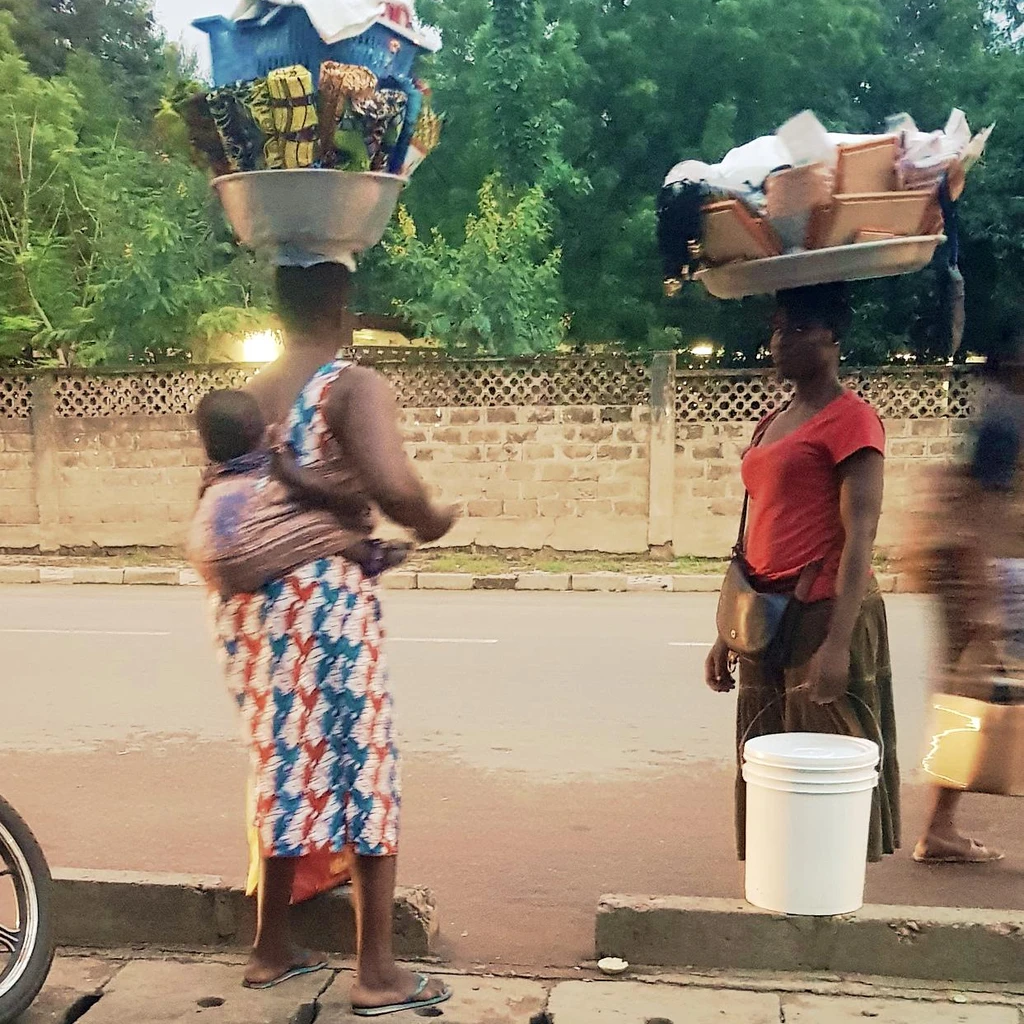 In Togo, as elsewhere in Africa, almost everything is carried on the head with great skill, even large loads such as 50 kg bags of cement!
In Togo, as elsewhere in Africa, almost everything is carried on the head with great skill, even large loads such as 50 kg bags of cement!
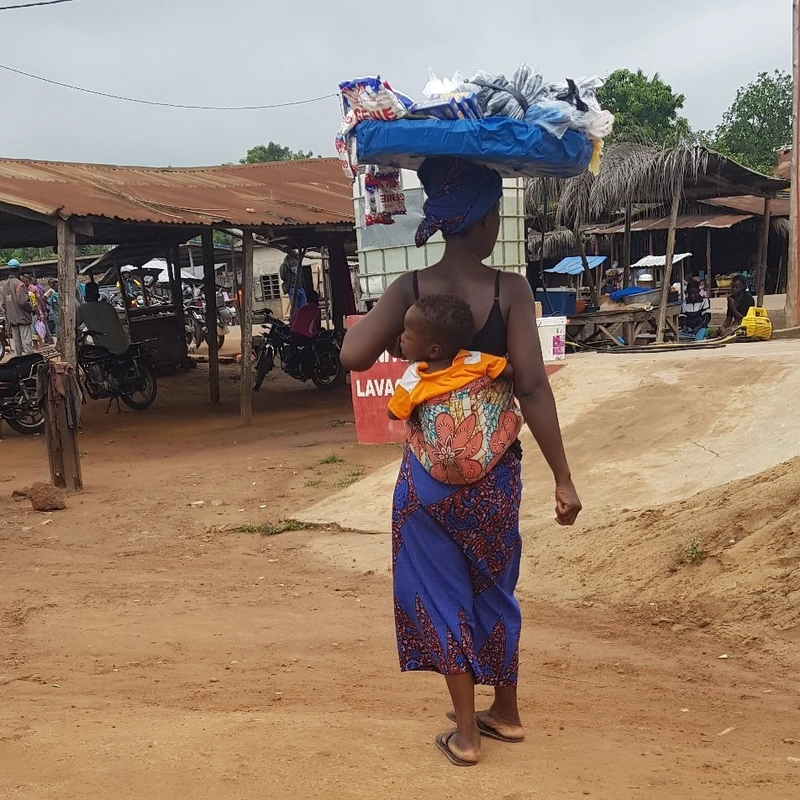 The children are always with their mother from an early age and are carried in a cleverly wrapped sling.
The children are always with their mother from an early age and are carried in a cleverly wrapped sling.
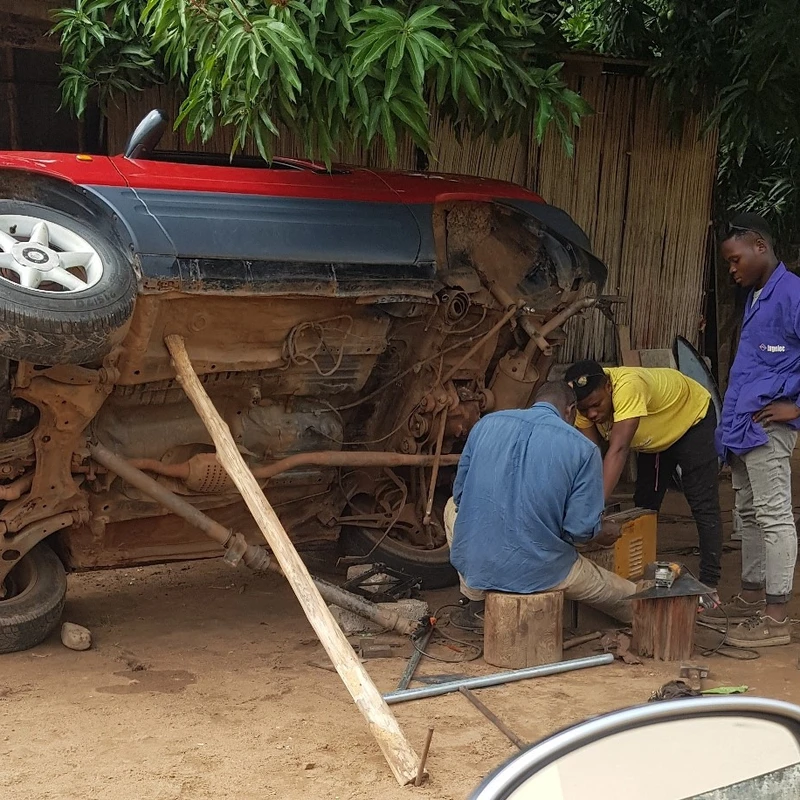 The cars in Togo are almost exclusively used cars from Europe. The photo shows a wheel suspension being repaired.
The cars in Togo are almost exclusively used cars from Europe. The photo shows a wheel suspension being repaired.
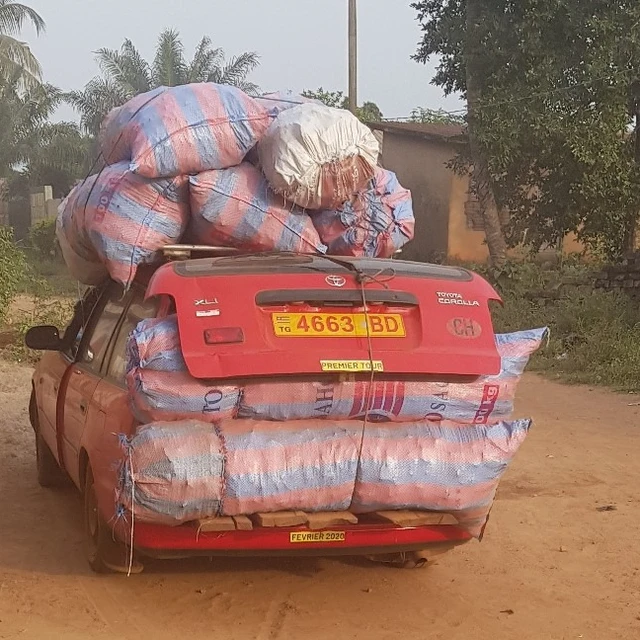 A yellow license plate means cab. The most popular model is the Toyota Carolla, probably because it can take the most punishment. The load here is charcoal.
A yellow license plate means cab. The most popular model is the Toyota Carolla, probably because it can take the most punishment. The load here is charcoal.
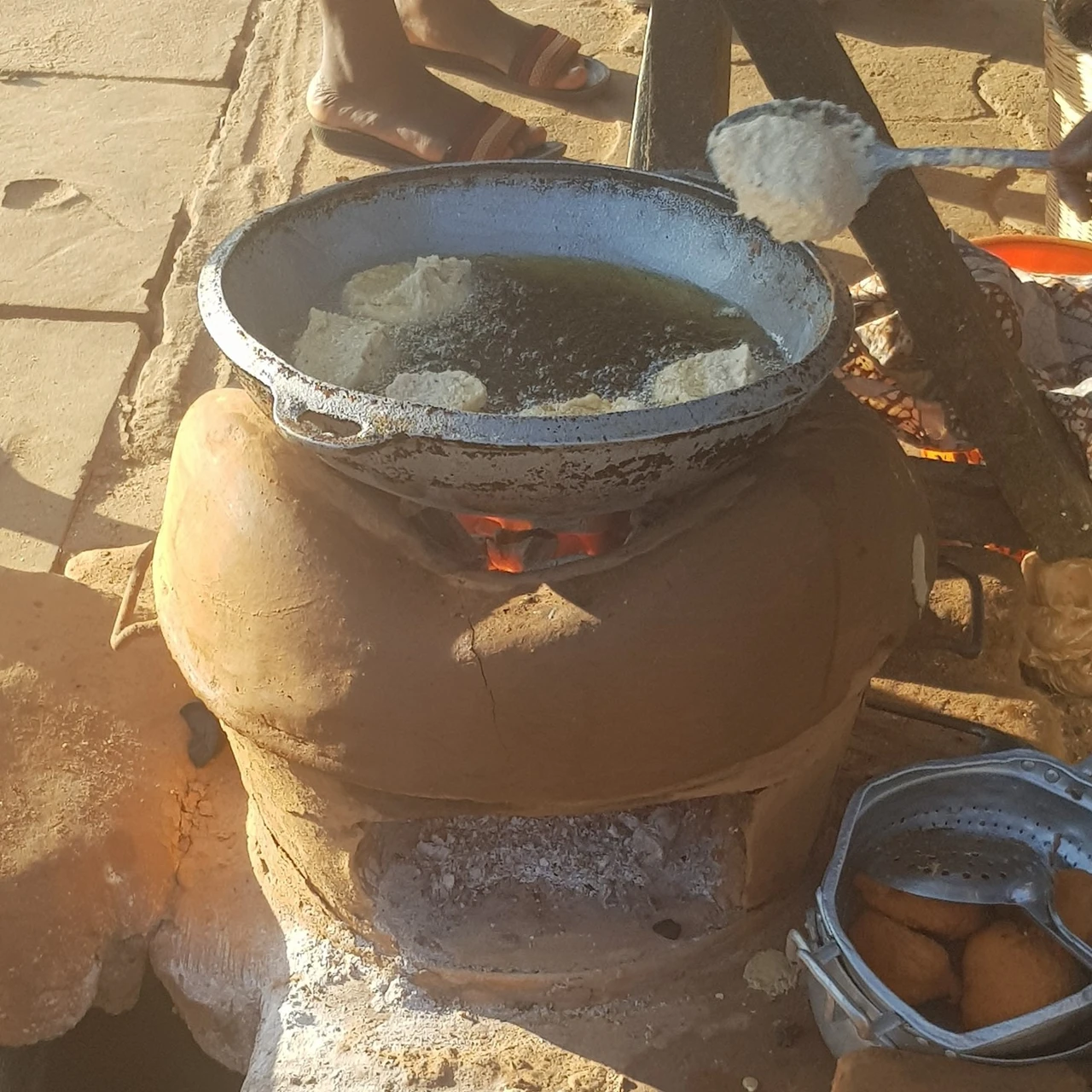 Charcoal is used for cooking almost everywhere. Here, fat-baked dumplings made from bean flour. Some people cook with a gas burner on a gas cylinder, but it's more expensive!
Charcoal is used for cooking almost everywhere. Here, fat-baked dumplings made from bean flour. Some people cook with a gas burner on a gas cylinder, but it's more expensive!
 This is a bus for overland transportation, usually a Mazda. Loading is the driver's own responsibility and benches that get in the way are simply put on the roof; there is no registration system in Togo and removals take place all the time.
This is a bus for overland transportation, usually a Mazda. Loading is the driver's own responsibility and benches that get in the way are simply put on the roof; there is no registration system in Togo and removals take place all the time.
 This bus had a problem with the wheel suspension. At some point, the constant overloading becomes noticeable. The passengers put up with it with patience. A flat rate is negotiated before the journey begins.
This bus had a problem with the wheel suspension. At some point, the constant overloading becomes noticeable. The passengers put up with it with patience. A flat rate is negotiated before the journey begins.

This is a cab at full capacity. I counted about 20 people. On Sundays we always go to football matches and a Togolese always has little or no money.
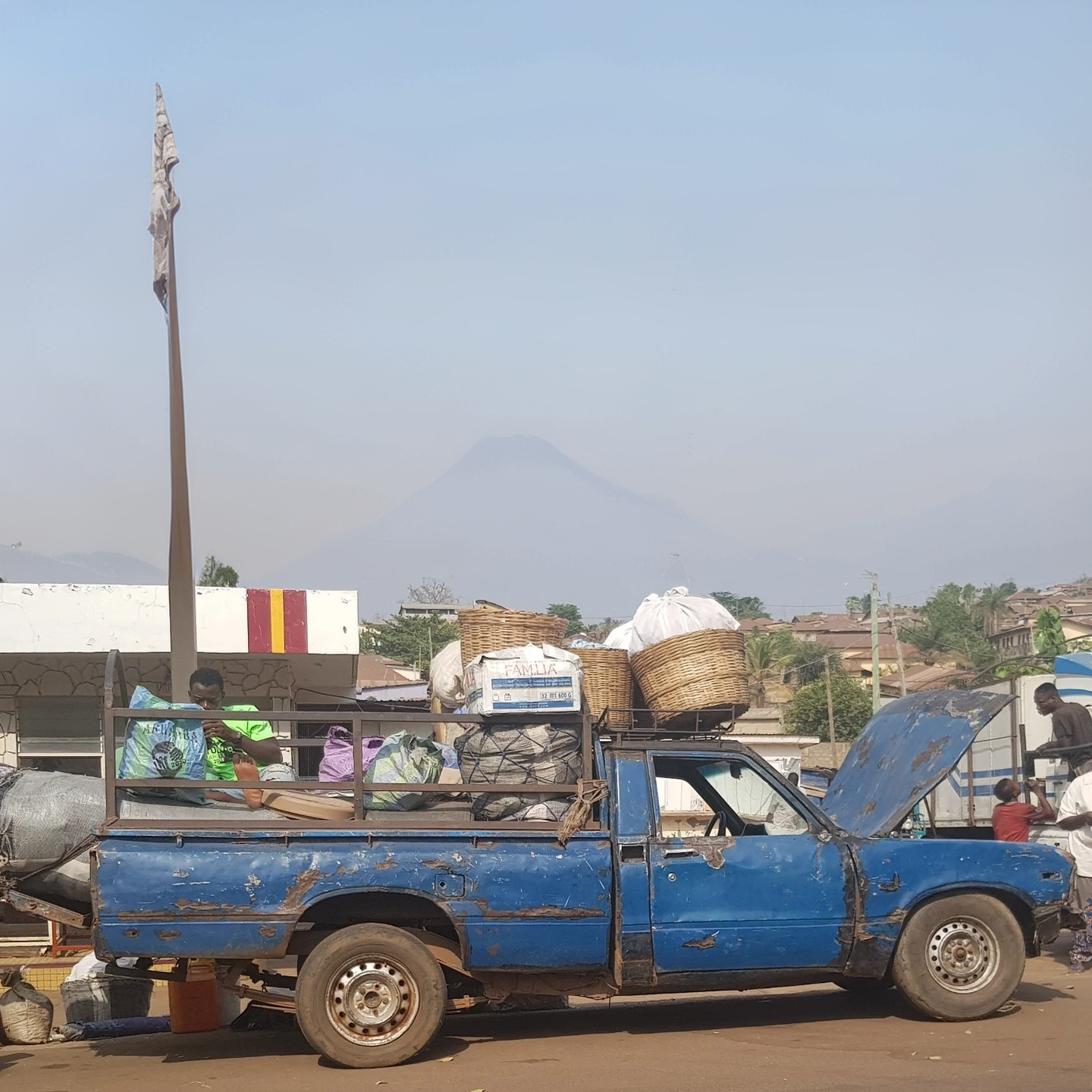 In Togo, cars are used until they fall apart. Is there supposed to be something like an MOT? In such a poor country, other standards apply.
In Togo, cars are used until they fall apart. Is there supposed to be something like an MOT? In such a poor country, other standards apply.
 Only goods are loaded here, but each bag weighs 100 kg, the springs must come from a truck, the seats go on the roof and off we go, the springs for the chassis are probably from the truck?
Only goods are loaded here, but each bag weighs 100 kg, the springs must come from a truck, the seats go on the roof and off we go, the springs for the chassis are probably from the truck?
 The trucks for long-distance transportation are longer than ours and, depending on the number of axles, are loaded with much more freight. Tolls are charged for long-distance roads depending on the weight.
The trucks for long-distance transportation are longer than ours and, depending on the number of axles, are loaded with much more freight. Tolls are charged for long-distance roads depending on the weight.
 I don't know what restrictions there are for trucks here, but they are not petty.
I don't know what restrictions there are for trucks here, but they are not petty.
 Many classic cars are still in use here. Quality made in Germany. Only the radiator grille and bumper do not appear to be original, but they are creative here!
Many classic cars are still in use here. Quality made in Germany. Only the radiator grille and bumper do not appear to be original, but they are creative here!
 These are parked chickens near the market. Simply tie their legs together and that's it. The chickens take it with patience. Hardly conceivable here.
These are parked chickens near the market. Simply tie their legs together and that's it. The chickens take it with patience. Hardly conceivable here.
 The selection of spices is enormous. But the good Maggi from Germany is also there. Every village has a fixed market day each week. In Kpalimé it is Saturday and Tuesday.
The selection of spices is enormous. But the good Maggi from Germany is also there. Every village has a fixed market day each week. In Kpalimé it is Saturday and Tuesday.
 Used clothing in all shapes and sizes. If you are looking for something specific, they are very willing to help you. Quite different from Germany.
Used clothing in all shapes and sizes. If you are looking for something specific, they are very willing to help you. Quite different from Germany.
 It is important to negotiate well on the market. As a white person, you usually have to pay more. Unless you are familiar with the prices.
It is important to negotiate well on the market. As a white person, you usually have to pay more. Unless you are familiar with the prices.
 The selection on the market is enormous and prices vary depending on the season. Everything is more expensive in the dry season. You can also shop at the market on Sundays, but the selection is limited.
The selection on the market is enormous and prices vary depending on the season. Everything is more expensive in the dry season. You can also shop at the market on Sundays, but the selection is limited.
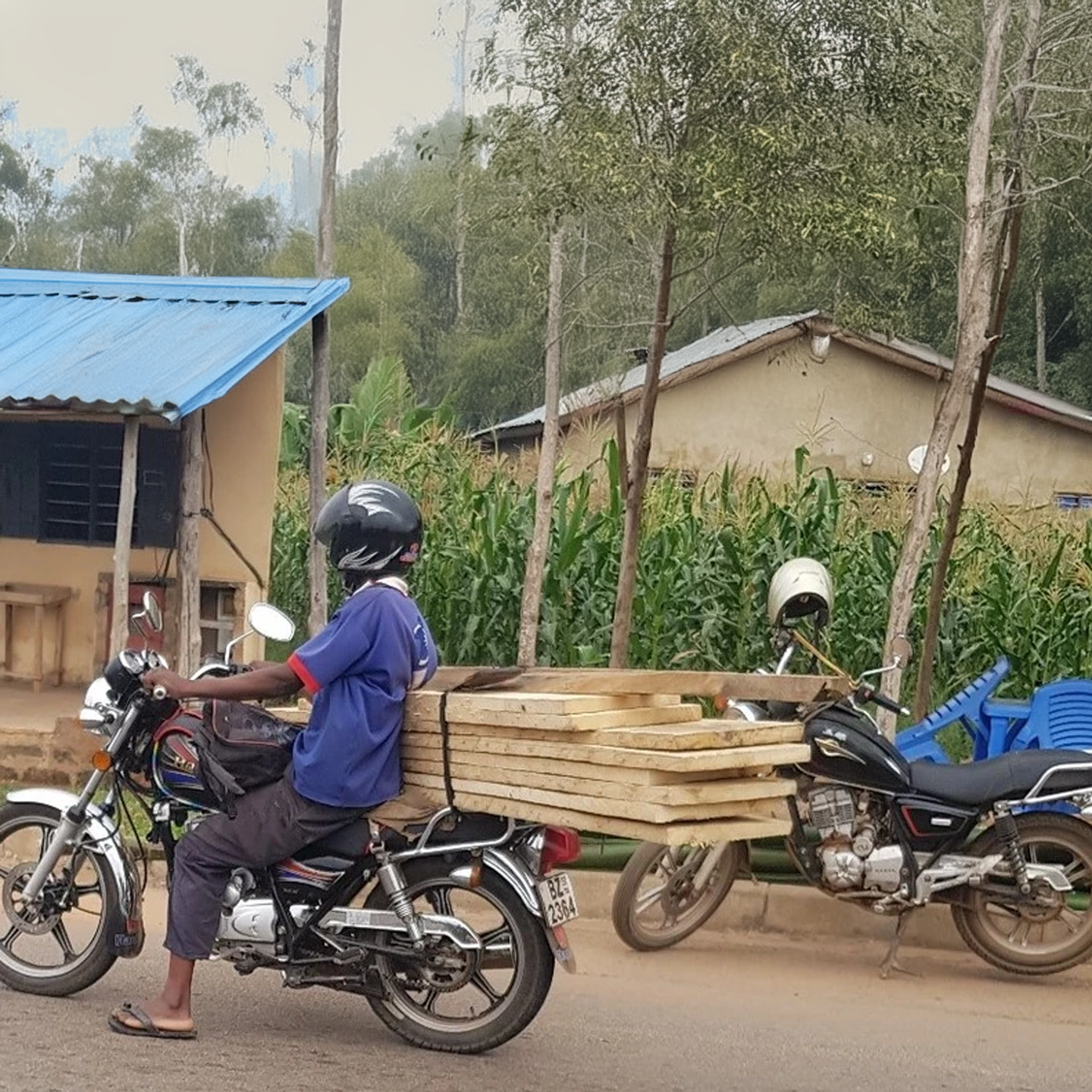 Motorcycles are used everywhere as a means of transportation. They are called moto for short and come from China, can withstand a lot and cost little. The boards here are about 3 meters long and are nothing special.
Motorcycles are used everywhere as a means of transportation. They are called moto for short and come from China, can withstand a lot and cost little. The boards here are about 3 meters long and are nothing special.
 There are moto-taxis on every corner, transporting all kinds of things. One has a bicycle in his hand, the other a wheelbarrow on his head. Nothing special in Togo and the crack in the windshield of the cab.
There are moto-taxis on every corner, transporting all kinds of things. One has a bicycle in his hand, the other a wheelbarrow on his head. Nothing special in Togo and the crack in the windshield of the cab.
 A motorcycle with a loading area near the market. Goats, pigs or something else are loaded onto it.
A motorcycle with a loading area near the market. Goats, pigs or something else are loaded onto it.
 Delivering chairs to a bar, on a motorcycle of course. In the evening, there was football to watch and emotions ran high among the Togolese. Only a few could afford a television.
Delivering chairs to a bar, on a motorcycle of course. In the evening, there was football to watch and emotions ran high among the Togolese. Only a few could afford a television.
 A bricklayer on his way to work in a motorized cab. The mortar is mixed by hand.
A bricklayer on his way to work in a motorized cab. The mortar is mixed by hand.
 A nap on the moto, in French la moto. Africans can sleep in almost any position.
A nap on the moto, in French la moto. Africans can sleep in almost any position.